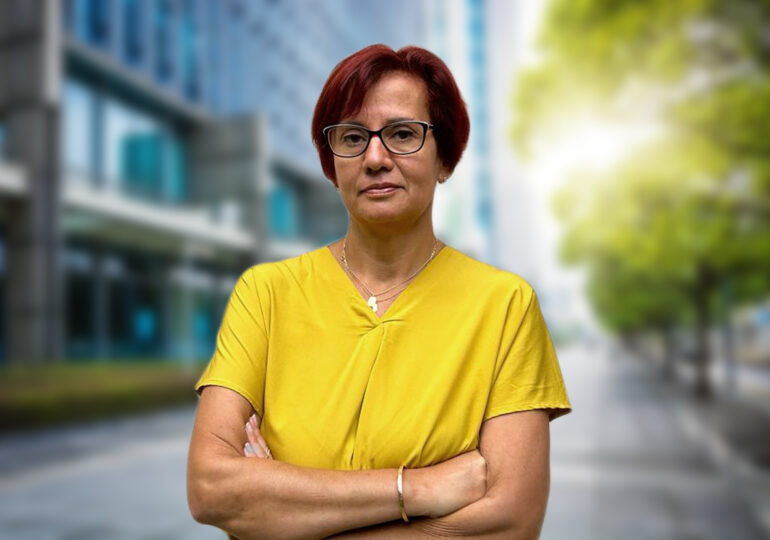The criminal case of the two former SRI generals, Dumitru Dumbravă and Florian Coldea has many facets and perspectives from which it can be interpreted, not necessarily contradictory, but certainly complex.
From the outset, it must be said that anyone who has broken the law must pay for it, without any exceptions.
Secondly, I consider it problematic, even immoral, for individuals who have spent years in the camp of crime hunters to end up using the same skills to serve criminals, weakening the state's response.
Everyone has the right to defense, but that's what lawyers are for. For an SRI general to start teaching criminals how to get away with it cannot be morally justified under any argument. And in the case of Dumitru Dumbravă, the recordings from the criminal case clearly show that this has happened.
However, the criminal aspect is very thin, at least as it appears in the Prosecution Order of May 22, 2024, so generously distributed to the press that only those who didn't want to did not read it and did not reproduce parts of it.
The perceptions file
The two generals, along with lawyer Doru Trăilă, are accused of influence peddling - art 291 CC. What does this offense entail:
"The demanding, receiving, or accepting the promise of money or other benefits, directly or indirectly, for oneself or for another, committed by a person who has influence or leads to the belief that they have influence over a public official and who promises to persuade him to perform, not perform, expedite, or delay the performance of an act that falls within his duties."
So an explicit promise to persuade, in this case, a magistrate to do something is required. This promise is not found in any of the conversations reproduced in the Order.
Most magistrates and lawyers consulted believe that under these conditions, without a specific promise and a specific magistrate, this offense cannot be discussed.
About the ability to intervene, the power, the legend of the two generals is mainly discussed by Dan Tocaci, the intermediary in the case, in discussions with the informant Hideg. But no one can be blamed for what others say or the perceptions of others about them.
And Florian Coldea does not appear in any transcript, with only third-party claims about his power and the fact that he received money from Dumitru Dumbravă's company, which could be what the prosecutor says, but also a payment for any other service, made when the company received a payment.
It is interesting that Trăilă, Dumbravă, and Coldea are referred to in the Order as a "team," although the accusation practically refers to an organized criminal group, which would fall under the jurisdiction of DIICOT, not DNA. The term "team" is certainly legally strange.
Despite the fact that the entire press was generously informed that the arrest of Coldea and Dumbravă was imminent, and Antena 3 dedicated a whole night until 3 a.m. to it, the preventive measure taken, judicial control, is minor. What disrupted the plan?
It is also strange that the prosecutor did not order any searches, especially computer searches, which are mandatory, according to the consulted magistrates, if you really want and expect to obtain evidence.
Beyond the moral and legal aspects discussed above, what remains in this case?
1. There is an obvious thirst for revenge. Criminal television channels are in delirium, as are convicts still in prison like Elena Udrea. In my opinion, the desire for revenge of the former defendant Moraru Iorga is not at all excluded, on the contrary.
I have no doubt that the ultimate target of this thirst for revenge is Codruța Kovesi, against whom SIIJ attempted a failed offensive.
2. Possible settling of scores, even tectonic shifts at the end of a political era.
If Mr. Dumbravă's promised optimization was not sufficient, the denunciation against the generals will halve Mr. Hideg's sentence limits on appeal, according to article 19 of Law no. 682/2002.
Has someone optimized Mr. Hideg more efficiently, indicating exactly what he needs to do, with names and surnames, to avoid prison? Perhaps there is competition in the optimization market, and someone else wants a piece of the "stand"? Being an electoral year and the end of an era, is it desirable for some characters to be completely inactivated?
It is known that both Mr. Voineag, the head of DNA, and Ms. Moraru Iorga are very close to Bogdan Licu, a former prosecutor always at the top of the system and current CCR judge, considered a magistrate very close to SRI.
3. The case masks the inefficiency of DNA, whose activity is declining, with many cases being closed, inconvenient prosecutors being purged, and a reorganization with the dismantling of territorial structures, so that central control is total.
4. We are in the final stage of the restoration, where successive CCR decisions and changes at the top of the prosecution offices have emptied the prisons. It is probably not a coincidence that while anti-corruption was demonized along with the case of the generals, Dan Voiculescu obtained, in the first instance, the suspension of the recovery of damages, awaits the review of the sentence, and re-entered the political game openly with his party.

